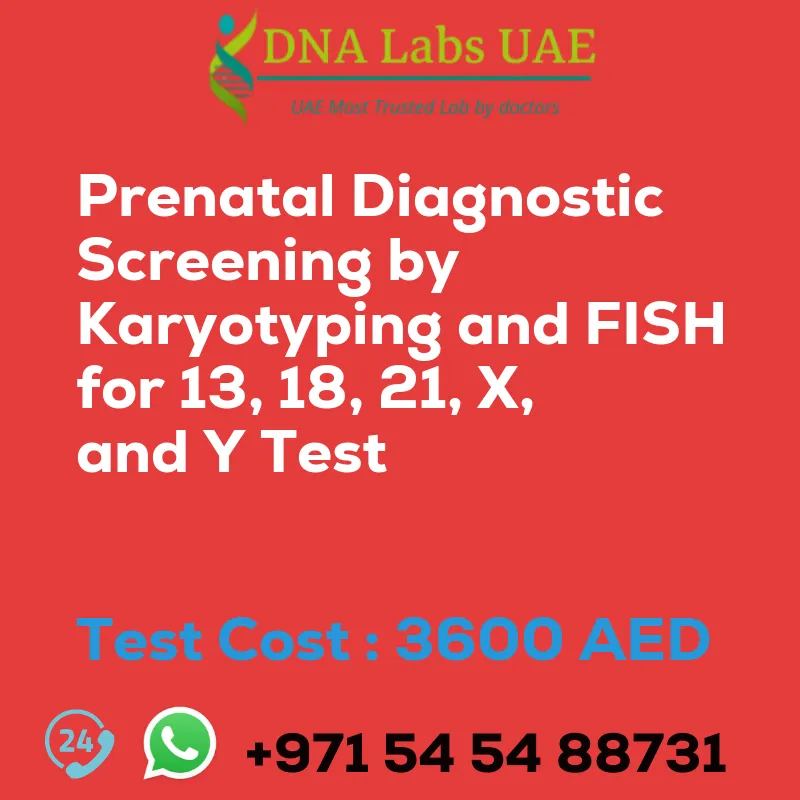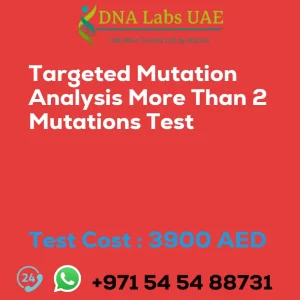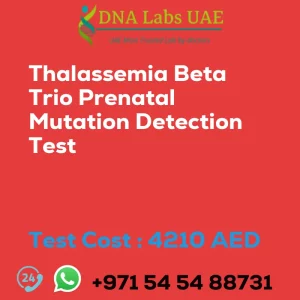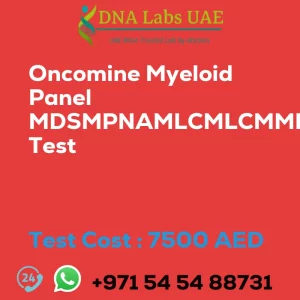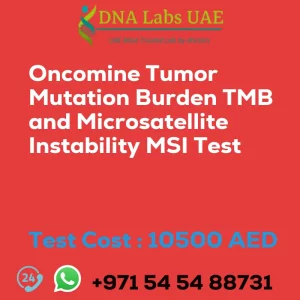Prenatal Diagnostic Screening by Karyotyping and FISH for 13 18 21 X and Y Test
Introduction
Prenatal diagnostic screening using karyotyping and FISH (Fluorescence In Situ Hybridization) is a common method used to detect chromosomal abnormalities in the fetus. This screening is typically performed during the first trimester of pregnancy.
Test Components
The test requires 2 sterile tubes (15 ml. each) or a sterile tissue culture container with normal saline or culture media.
Price
The cost of the test is 3600.0 AED.
Sample Condition
The sample can be either amniotic fluid or bits of chorionic tissue.
Report Delivery
The test results are typically delivered within 15-20 days.
Method
The test involves cell culture and FISH. Fetal cells are collected through amniocentesis or chorionic villus sampling (CVS), cultured, and stained to create a karyotype. FISH is then used to detect specific chromosomal abnormalities.
Test Type
The test falls under the genetics category.
Doctor
The test is usually ordered by a gynecologist.
Test Department
The test is conducted in the prenatal diagnostic screening department.
Pre Test Information
Prenatal Diagnostic Screening by Karyotyping + FISH for 13, 18, 21, X and Y can be done with a doctor’s prescription. However, the prescription is not applicable for surgery and pregnancy cases or people planning to travel abroad.
Test Details
Prenatal diagnostic screening using karyotyping and FISH is a technique used to detect chromosomal abnormalities in the fetus. Karyotyping involves analyzing the chromosomes of the fetus to check for structural abnormalities or aneuploidies. FISH, on the other hand, allows for the detection of specific chromosomal abnormalities using fluorescent probes.
Fetal cells are collected through amniocentesis or chorionic villus sampling and cultured to create a karyotype. The karyotype is a visual representation of the chromosomes. FISH is then used to detect abnormalities in chromosomes 13, 18, 21, X, and Y.
Conditions such as Down syndrome, Edwards syndrome, Patau syndrome, Turner syndrome, and Klinefelter syndrome can be detected through this screening. These conditions can cause various physical and developmental abnormalities. Detecting these abnormalities through prenatal screening allows parents to make informed decisions about the pregnancy and plan for the future care of the child if necessary.
It’s important to note that karyotyping and FISH have limitations. They can only detect specific chromosomal abnormalities being tested for and may not provide information on other genetic disorders. Further genetic testing may be recommended in some cases. However, prenatal diagnostic screening using karyotyping and FISH for chromosomes 13, 18, 21, X, and Y is an important tool in assessing the chromosomal health of the fetus and providing valuable information to parents and healthcare providers.
| Test Name | Prenatal Diagnostic Screening by Karyotyping and FISH for 13 18 21 X and Y Test |
|---|---|
| Components | 2 sterile tubes (15 ml. each) / Sterile tissue culture container with normal saline or culture media |
| Price | 3600.0 AED |
| Sample Condition | Amniotic fluid \/ Bits of Chorionic tissue |
| Report Delivery | 15-20 days |
| Method | Cell culture+ FISH |
| Test type | Genetics |
| Doctor | Gynecologist |
| Test Department: | |
| Pre Test Information | Prenatal Diagnostic Screening by Karyotyping + FISH for 13, 18, 21, X and Y can be done with a Doctors prescription. Prescription is not applicable for surgery and pregnancy cases or people planing to travel abroad. |
| Test Details | Prenatal diagnostic screening using karyotyping and FISH (Fluorescence In Situ Hybridization) is a common method used to detect chromosomal abnormalities in the fetus. This screening is typically performed during the first trimester of pregnancy. Karyotyping is a technique that involves analyzing the chromosomes of the fetus to check for any structural abnormalities or aneuploidies (abnormal number of chromosomes). In this process, a sample of fetal cells is collected, usually through amniocentesis or chorionic villus sampling (CVS). These cells are then cultured and stained to create a karyotype, which is a visual representation of the chromosomes. FISH is a complementary technique to karyotyping that allows for the detection of specific chromosomal abnormalities. It involves using fluorescent probes that bind to specific regions of the chromosomes, allowing for the visualization of abnormalities under a fluorescent microscope. In the case of prenatal screening, FISH is commonly used to detect abnormalities in chromosomes 13, 18, 21, X, and Y. Chromosomal abnormalities that can be detected through karyotyping and FISH include conditions like Down syndrome (trisomy 21), Edwards syndrome (trisomy 18), Patau syndrome (trisomy 13), Turner syndrome (monosomy X), and Klinefelter syndrome (XXY). These conditions can cause a range of physical and developmental abnormalities, and their detection through prenatal screening allows parents to make informed decisions about the pregnancy and plan for the future care of the child if necessary. It’s important to note that while karyotyping and FISH are valuable tools for prenatal screening, they do have limitations. They can only detect specific chromosomal abnormalities that are being tested for, and they may not detect all abnormalities or provide information on other genetic disorders. In some cases, further genetic testing may be recommended if there are concerns or additional risk factors present. Overall, prenatal diagnostic screening using karyotyping and FISH for chromosomes 13, 18, 21, X, and Y is an important tool in assessing the chromosomal health of the fetus and providing valuable information to parents and healthcare providers. |

